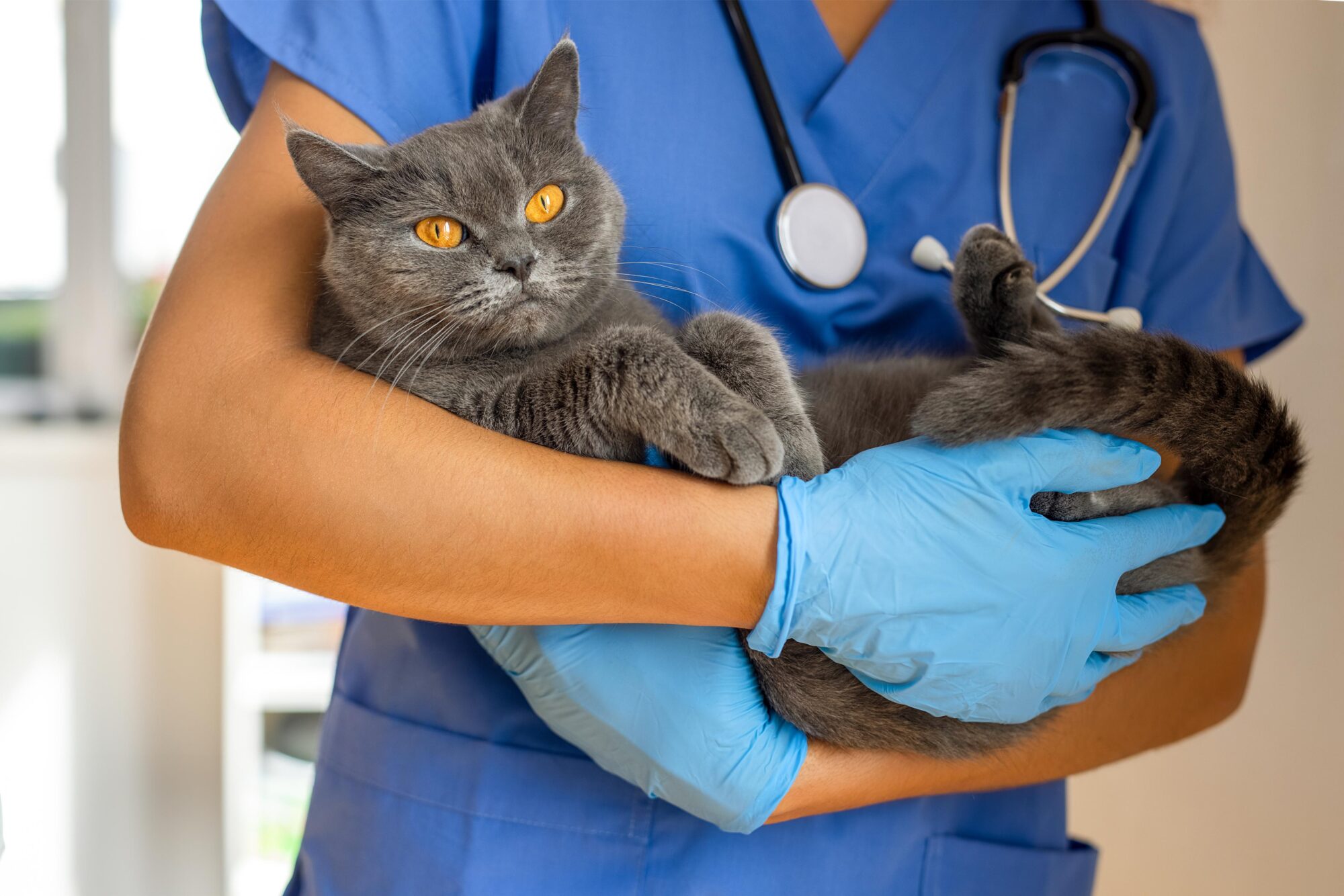Wrapping Your Paws Around Common Cat Health Issues

At Sunrise Boulevard Animal Hospital, we think cats are pretty purrfect. They have a lot of great attributes and can add so much to our households. One of their amazing qualities, to seemingly have nine lives and avoid disaster, can be to their own detriment, though. Cats are well known to hide signs of injury or illness readily, and by the time we recognize something is wrong, it can be too late. Understanding some of the more common cat health issues and feline diseases can help pet lovers know when something might be not quite right with their kitty.
Sniffing Out Trouble
In our animal patients, many different disease processes and illnesses can present somewhat similarly. Often, making an appointment to bring your cat in to see us for an examination and diagnostics is the place to start.
If you don’t recognize something is going on, though, you will never make that appointment. Knowing signs that something is off with your cat can make the difference between a good and less favorable outcome.
Signs that your cat might be sick can include:
- Increased or decreased drinking
- Increased or decreased appetite
- Changes in frequency of litter box visits
- Not using the litter box
- Vomiting
- Diarrhea
- Weight loss or gain
- Hiding more than normal
- Changes in social habits
- Decreased energy
- Changes in vocalizations
- Limping or other signs of pain
- Changes in grooming habits
- Dull or matted hair coat
- Discharge from eyes or nose
- Changes in skin
With our feline patients, a lot comes down to you as their caretaker knowing what is normal for them. When you are alert to minor changes, you can identify when something is amiss more quickly.
Of course your pet’s routine wellness visits are also a great opportunity to pick up on more subtle changes like weight loss or deviations on screening wellness lab work.
Common Feline Diseases and Issues
Our veterinary staff are very familiar with many cat health issues, and some of them are certainly more common than others.
Common feline diseases and health conditions that we diagnose include:
- Arthritis: Perhaps the most under-recognized of the cat health issues we see, feline arthritis is very common in aging cats. Symptoms of degenerative joint disease and pain can be subtle and may include things like decreased grooming, less willingness to jump, and lower activity levels.
- Chronic kidney disease: As cats age, it is very common for their kidneys to show some wear and tear. Pets affected by chronic kidney disease often have increased thirst, increased urination, weight loss, and intermittent decreased appetite.
- Dental disease: Just like humans and dogs, cats can be affected by periodontal disease as well as inflammatory oral conditions and tooth resorption.
- Diabetes: Cats affected by diabetes often present with increased thirst, increased urination, a ravenous appetite, and weight loss.
- Hyperthyroidism: The thyroid gland is an important endocrine organ that, in some pets, can start to produce too much thyroid hormone. This upregulates the metabolism, causing weight loss, increased hunger, and increased blood pressure.
- Upper respiratory infections: Sneezing, watery eyes, and congestion are often seen in cats that have a respiratory infection.
- Urinary issues: Cats can be affected by urinary tract infections, urinary stones, and most commonly cystitis (inflammation of the bladder). Sometimes these problems can also lead to urinary obstruction, which is a life-threatening emergency.
By understanding what some of the more common cat health issues might look like, pet owners can be more aware of changes that could be a cause for concern. We don’t expect you to diagnose your pet’s problem, but letting us know what you are noticing can help us help your cat sooner.
